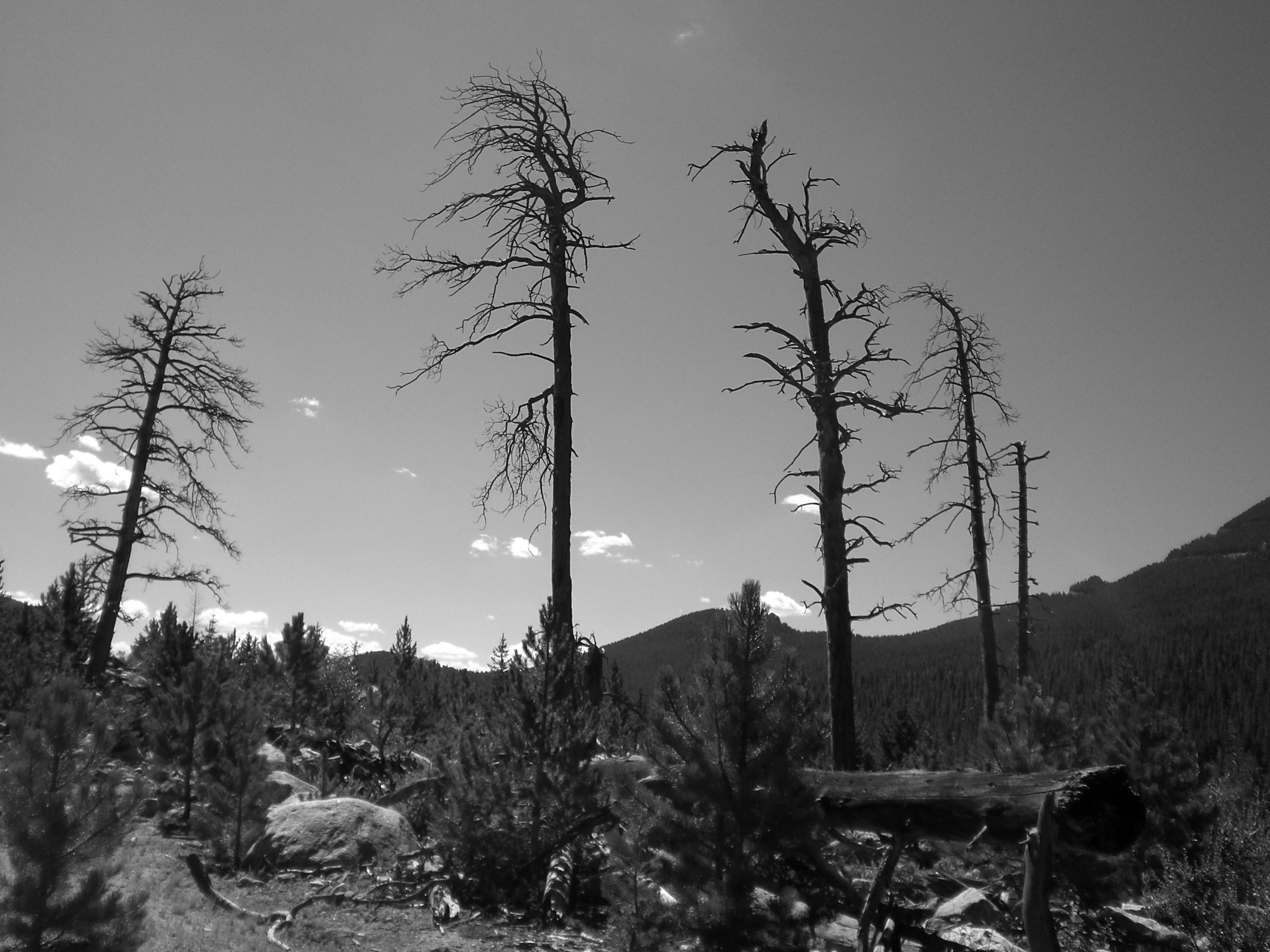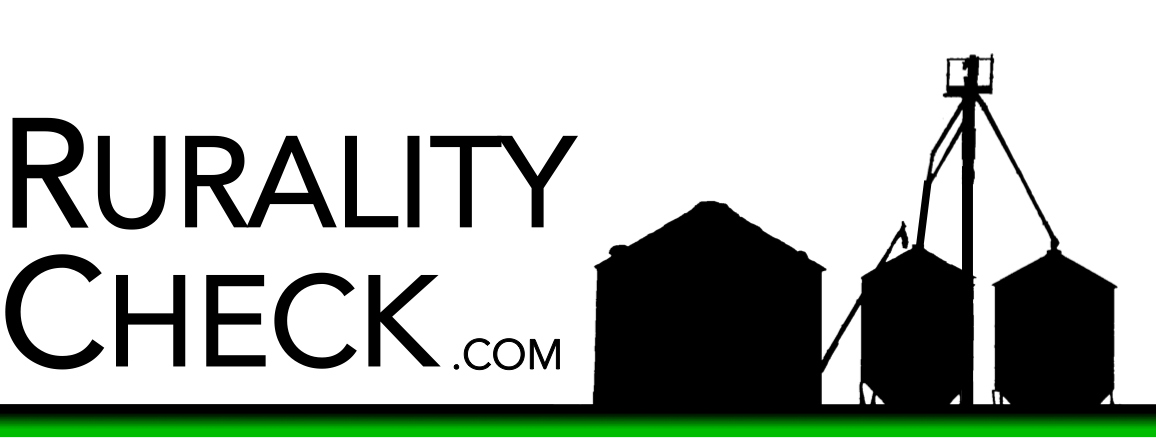
The last article presented a case against socialism in favor of cooperation. This article outlines how that cooperation can look. Specifically, it argues against self-sufficiency, and for communities somewhere between socialism and self-sufficiency, or between the political Left and Right.
Before we begin, we should be good little boys and girls and clarify our terms. I use the term “self-sufficiency” literally, meaning that the self alone will suffice. Self-sufficiency speaks to a kind of lone-wolf individualism that depends on no one. Admittedly, it’s a tough row to hoe.
Self-reliance is more lax—I interpret self-reliance as mere accountability for oneself. Accountability is different than sufficiency: accountability, perhaps by definition, assumes a relationship to others, while sufficiency does not. (i.e. You’re accountable for yourself, but only in relation to others. Someone else has to do the accounting in order for the word to make sense.) As a result, I use “reliance” as a weaker form of “sufficiency,” and I interpret reliance to include accountability in all forms of procurement, including trade with other parties, which is something that sufficiency disallows. It might seem like we’re splitting hairs here, or that I’m taking liberties here, but we’re just setting the terms, which will become important.
So, self-reliance includes contributing to the group—and taking from the group—in an accountable way. Simply stated, it can mean pulling your own weight. Self-sufficiency is about removing yourself from the group entirely, and going about your life alone. These are different, even if they are lumped together in our political discussions.
They are also different because one is a myth.
One example of the implausibility of self-sufficiency comes from an unlikely source: Dick Proenekke, the iconic Alaskan hermit of PBS’s Alone in the Wilderness fame. You may be familiar with Mr. Proenekke’s story without knowing it: he is the guy who went to the Alaskan wilderness fifty years ago and filmed himself building his own log cabin by hand. He also documented his trials hunting, fishing, and gardening, as well as backwoods woodworking, including making cooking utensils and door locks (to deter bears, as there were no thieves). He lived “alone in the wilderness” for decades. It’s impressive, to put it mildly.
Mr. Proenekke’s home videos have inspired many people, and he is held in some circles as the quintessential lone wolf. For many, he is the epitome of self-sufficiency—always imitated, never duplicated, often for logistic reasons.
Except there’s a problem: even Mr. Proenekke was not self-sufficient, really.
Primitive and impressive as his lifestyle might have been, he was not fully removed from (then) 20th-century American culture. He had supplies delivered by airplane twice a year, including sugar and Tabasco sauce. He frets during construction of his cabin about his decision to line the roof with sheet plastic. He has a gun and steel tools. And a modern canoe. And modern clothes. And glass windows, even.
To borrow a phrase, he didn’t build that.
Pointing out Proenekke’s use of modern items is not to detract from his impressive lifestyle. Instead, it’s to highlight that when we say he was self-sufficient, we mean simply that he was more self-sufficient than most of us are. By a mile. Dick Proenekke was certainly self-reliant, though, because he had saved up to pay for his lifestyle, which was pretty easy, given that it was so cheap. Nonetheless, even he was not self-sufficient.
Who cares? What point is there in inventing a term, self-sufficiency, that has no practical application? Proenekke’s example highlights a mistake that the Right makes in its political discourse. The Right uses terms like “self-sufficiency,” which is impossible or implausible, to justify some of its policy stances of individualism and accountability.
It turns out that justifying one’s position with impossibilities is a weak rhetorical strategy. Doing so merely cements the Left’s belief that the Right is living in a daydream of hyperindividualism. Worse yet, many on the Right appear to be living that daydream unknowingly. That the Right spends most of its time railing against collectivism and promoting individualism feeds the narrative. It’s not doing itself any favors.
Of course, the Left shoots itself in the foot, too. Arguments like the one presented thus far—that self-sufficiency is a myth—often proceed to slide down a slippery slope, where if we establish that we are not lone wolves, we therefore become collectivists, and perhaps socialists. As my previous article hints, we will not go down that slope here. But we do have to find the other extreme and build from there.
If we want to end up in the middle, we have to find the edges. And self-sufficiency is the edge, or the fringe. Socialism is another edge, or another fringe. Neither represents our human reality very well. Or, both represent that human reality incompletely, and woefully so.
Humans are social animals. Here’s how that sociality—but not socialism—can look.
To speak broadly, human interactions are rooted in the idea of cooperation. Cooperation flourishes when it includes specialization and the division of labor. Specialization and division of labor allow for great gains of production, of course. So, cooperation leads to increases in production, or synergistic production, compared to lone-wolf individualism, or even compared to groups of people who do not specialize and divide their labor.
This is nothing new. Adam Smith’s pin factory and introductory economics texts of any level say the same thing.
Of course, problems arise when we try to police the consumption of that production. To rehash a point from last time, groups must monitor production and consumption to ensure that the group remains functional. Some free-riders, or cheaters, are tolerated: children and the aged, for example, are strictly defined as cheaters because they consume more than they produce in a metabolic sense, but they are tolerated for other reasons that often relate to group survival. The severely laid up might also be tolerated, for example. But in general, when too many members of the group take instead of make, the group breaks down, because the members who are producing can’t pick up the slack. Like the benefits of the division of labor, this is also straightforward, and review.
The need to police the consumption of resources, hard-wired in our brains by evolution, might help explain why so many hard-working Americans are so proud of the fact that they work. This might be especially true in rural areas, where anonymity is non-existent and accountability might seem to matter a bit more. In this sense, it’s a badge of honor to work. It’s an identity. It means you can support yourself. It means you’re self-sufficient.
Wait—I meant self-reliant.
See what happened there? It’s easy to do.
So, here’s the new twist on the rhetoric of the Right. It’s both subtle and big. It will help us avoid absurd discussions of self-sufficiency while talking about accountability. It will help us avoid absurd discussions of large-scale collectivism while talking about cooperation. Here it is:
Working is itself a social act.
Just by working, you tether yourself to the group. You admit that you are not a lone wolf. You admit that self-sufficiency is impossible, or at least very difficult. You decide to reap the benefits of the division of labor. As a logical consequence of that decision, you, too, participate in the division of labor, just by working.
Because you work, and because you choose to specialize, you forfeit your quest for self-sufficiency—there just isn’t time to do both.
Of course, it also means that if you don’t work at all, you’ve still forfeited, well, everything. That is, at least if you’re not a child, elderly, or severely laid up.
So, now we can rethink our use of terms. Let’s start on the Left. It is indeed correct to say that no one is a lone wolf, and that we are all, indeed, in this together. But we’re not “in this together” in the absolute way that is often implied, even if “in this together” is used only as shorthand. That kind of absolute togetherness can be achieved only in small groups, where both production and consumption can be monitored absolutely, as discussed last time.
Instead, we all rely on specific others for our consumption. This is different than relying on “each other” in the abstract sense, the large-group sense, the undefined sense—the sense that makes pure collectivism possible. Instead, individuals, or consenting groups of individuals, trade with each other without the knowledge of the whole group. How often, or to what extent, one participates in those transactions—in short, the amount of production and consumption—is a choice, broadly speaking.
We don’t rely on “everyone”—we rely on many others. And how many others we rely on, and to what extent, is largely of our choosing because we choose how much to consume and produce.
The fact that the degree of production and consumption is a choice contradicts a key assumption of collectivism, summarized by Marx’s (in)famous “from each according to his ability, to each according to his own needs.” One sees the point, but such a system is ripe for cheating, because people indeed can, and do, choose to consume more than they produce, and much more. Or, even if there are no cheaters (newsflash: there are), such a system where cheating could go undetected is at the very least ripe for severe anxiety in a primate brain that is wired by evolution to detect cheating. It’s a setup for failure, or at least conflict.
Further, because production and consumption are choices, the level of indebtedness can vary wildly from person to person. Just as Marx said, some people produce more, perhaps according to their abilities, and some people consume more, perhaps according to their needs. Most important for our primate brain and its arithmetic of accountability, though, the net-production and net-consumption will vary, as well. Some people will produce more but also consume more; others will produce less, but consume less to match. How do we keep track of all of that arithmetic if we are not monitoring each other in a small group, like we evolved to do? If we are all reliant on the large group that we can’t fully monitor, and if we are all reliant to different degrees because of our choices to produce and consume, how can we start to quantify the spectrum of reliance?
To borrow another phrase, it’s the economy, Stupid. The market. In a system as large as ours, there seems to be no other way.
Even Dick Proenekke, the supposed king of self-sufficiency, and the actual king of self-reliance, participated in the market. He worked and saved money early in his life, and then he created a lifestyle where that money could last him not just “in retirement” at the end of his life, as many people do, but also for the bulk of his life. He was able to do this because his lifestyle depended so little on others via the market, which is one hallmark of true self-reliance, the kind that borders on self-sufficiency. He made a choice to largely extract himself from the market and obtain the overwhelming majority of the goods and services that he needed himself. In addition to his land, his capital was his talent, his skills, and his frugality (which, as one example, included saving firewood by keeping his cabin at about forty degrees in the Alaskan winter). That’s how his arithmetic came out.
Most of us don’t do this. In fact, we marvel at Proenekke as if he’s an alien. But Proenekke is merely on the fringe of a system from which we all benefit. His utilization of the market included a semi-annual supply run and a starting cache of a canoe, some steel tools, a gun, a roll of plastic, and some windows. That’s it.
If many of us were to start with only those supplies, that documentary would have been much shorter. Our choices are different. We have chosen to partake in the division of labor and reap many more of its fruits. He chose to reap some of the fruits—the basic stuff—and take care of the rest himself, or go without them. We are like Proenekke in that we depend on the market at all—nobody is self-sufficient—but we both contribute to it and depend on it much more fully. It kinda works out.
Importantly, though, we live in a society where the decision to partake fully in the division of labor, forty hours per week, has become assumed. (Some of this makes sense, as we can’t all extract ourselves like Proenekke did, in no small part because we can’t all utilize a parcel of land the size of Proenekke’s, but I would argue that it wouldn’t matter even if we could.) Because everyone “chooses” to participate in the division of labor, people on the Right feel comfortable saying that they are “self-sufficient” just because they work. Relatively speaking, I suppose they might be right.
But I got news for you, Pal: if you’re self-sufficient being a plumber or a teacher or a doctor, then we ran out of words for our friend Dick in Alaska. Being self-sufficient as a plumber is like being tall in Munchkinland: it makes sense only in a context, and only if you, ahem, set the bar low enough. We’re all so interdependent, even if to different degrees, that the words “self” and “individual” should be used much less frequently than they are. The words, and maybe the whole language of self-sufficiency, have stopped making literal sense like they do with Proenekke. We’ve lost sight of that.
Similarly, because reaping so many of the fruits of the division of labor is so common, people on the Left also talk about sharing resources as if those resources are, you know, common. In the big, grand, societal, communal sense. It’s as if everyone, regardless how much someone participates in the production side of the economy, is entitled to reap the fruits of a specialized economy at all, just because so many other people do. We’ve lost sight of our true level of consumption, and are focusing on relative comparisons, where if you consume less than others in America, you’re consuming too little, and that’s unfair.
Does this sound familiar?
But that’s merely the reverse of our Munchkinland example. Instead of saying you’re the tallest Munchkin, it’s like saying you’re the shortest NBA player—you’re still pretty tall. In terms of our economy, even if you’re consuming less than other Americans, you’re still consuming a lot, whether by world standards or standards of human history. Again, Proenekke reminds us of the absolute scale here, specifically what the fruits of a specialized economy look like compared to an actual baseline. To be simplistic, some people on the Left seem to ignore the production side of the equation—it’s like the economy’s fruits grow on trees.
Actually, it’s worse than that. It’s not like the resources grow on trees, where people have to go out with buckets and spend all day picking them—they just get mailed to you. Or, these days, you don’t even have to go to the mailbox and cash a check or pick up your stamps—they’re automatically transferred to a magic plastic card.
By Someone Else, of course. Whom we have to pay to do that.
Socialism is about more than welfare—I get it, I think. But our point here is the language. Just like our friend who works cannot say he’s self-sufficient, and therefore should not keep everything that is “his,” we cannot say that we’re all in this together and therefore share everything that is “ours.” After all, “cooperation” means to operate together, or to co-operate. Socialism doesn’t demand co-operation, at least strictly speaking—it might be better described as indiscriminate sharing, regardless the source, regardless who operated. It’s co-operation by mere proximity, by happening to live in a specific place. Co-operation by convenient accident of existence.
Instead of saying that we’re all in this together, we can say that we all are indeed here, and we all have the opportunity to share our own stuff in return for other stuff, which indeed makes us dependent on some other people, which is a good thing. Unfortunately, this is a bit more cumbersome. But it is also much more accurate, and much less misleading.
And saying that we’re all in this together is indeed misleading. This has to be—has to be—the root of some actual progressive policy proposals that demand an extreme form of sharing, a form that violates notions of self-reliance and choices to participate in the economy. Proposals like the universal basic income, for example, where you indeed get a lump of cash just for your proximity to production. In such a system, your biggest contribution is merely maintaining your own homeostasis. And as impressive as that might be in a biological sense, it’s wholly unimpressive in an economic one. Such a system would mean that you are entitled just for being…yes, just for being.
That’s not co-operation. That’s oversimplified collectivism. That’s just treating everyone as if she were a child, or elderly, or severely laid up. We already have social programs for these people, it turns out. And we’re struggling to pay for those, to put it mildly.
Back in the able-bodied crowd, policy proposals like universal income and free stuff are insulting to many people because participation in the group starts to resemble cheating the group. Don’t do that. Don’t create a system where participating even remotely resembles cheating. Primates don’t like that.
(To mop up some technical points: To be fair, some on the Right support a universal basic income, but only as a means to stop the bleeding of other social programs. That’s thin gruel. Also to be fair more generally, technology enables some producers to be so productive that the rest of the group might not have much left to produce, and in such cases group membership can start to look like cheating. However, there are ways to distribute those resources within the group that do not resemble cheating, and that’s a topic for another time, or perhaps a book. Suffice it to say for here, though, that a system that fails to distinguish between accountability and cheating, perhaps because there actually is no meaningful difference, is doomed to failure among groups of primates where some produce goods and services of value and others don’t.)
In sum, the Right has made a major rhetorical misstep by using hyperindividualized language of “self-sufficiency,” which is just fanciful thinking, and does not match reality. Even our friend Dick couldn’t pull it off. The Left has made a major rhetorical misstep, too, though. While it has correctly identified that self-sufficiency is a myth, and while it has correctly identified that government should not be built on that myth, it has also overcompensated by transforming language of reciprocity, or co-operation, into language of nearly indiscriminate sharing, all in the name of community. That’s misleading, because true communities, including our communities for most of our evolutionary history, have been built on reciprocity, and not indiscriminate sharing.
It should come as no surprise, then, that people who live in smaller groups in rural America understand the difference here. Sure, many of them make the mistake of claiming that they are self-sufficient, even if that is true only in a relative sense. But small-town people use a different language of community, which makes sense because small-town people form communities where people know each other and keep track of each other. To speak to rural people, the Left should consider grounding its rhetoric of community in terms of accountability and self-reliance, as counterintuitive as that might seem. Failure to do so makes small-town people skeptical. And often mad.
Two wrongs don’t make a right. Or a left, it seems. But they can make a middle. And before we get to that middle ground politically, we need to start realizing that we humans aren’t actually Left, or socialist. And we aren’t actually Right, or self-sufficient.
Instead, we’re just left right between.
How does that look, exactly?
Well, we’re working on it. Together.

P. A. Jensen is editor of RuralityCheck.com.
He lives in northern Minnesota with his wife and son.

